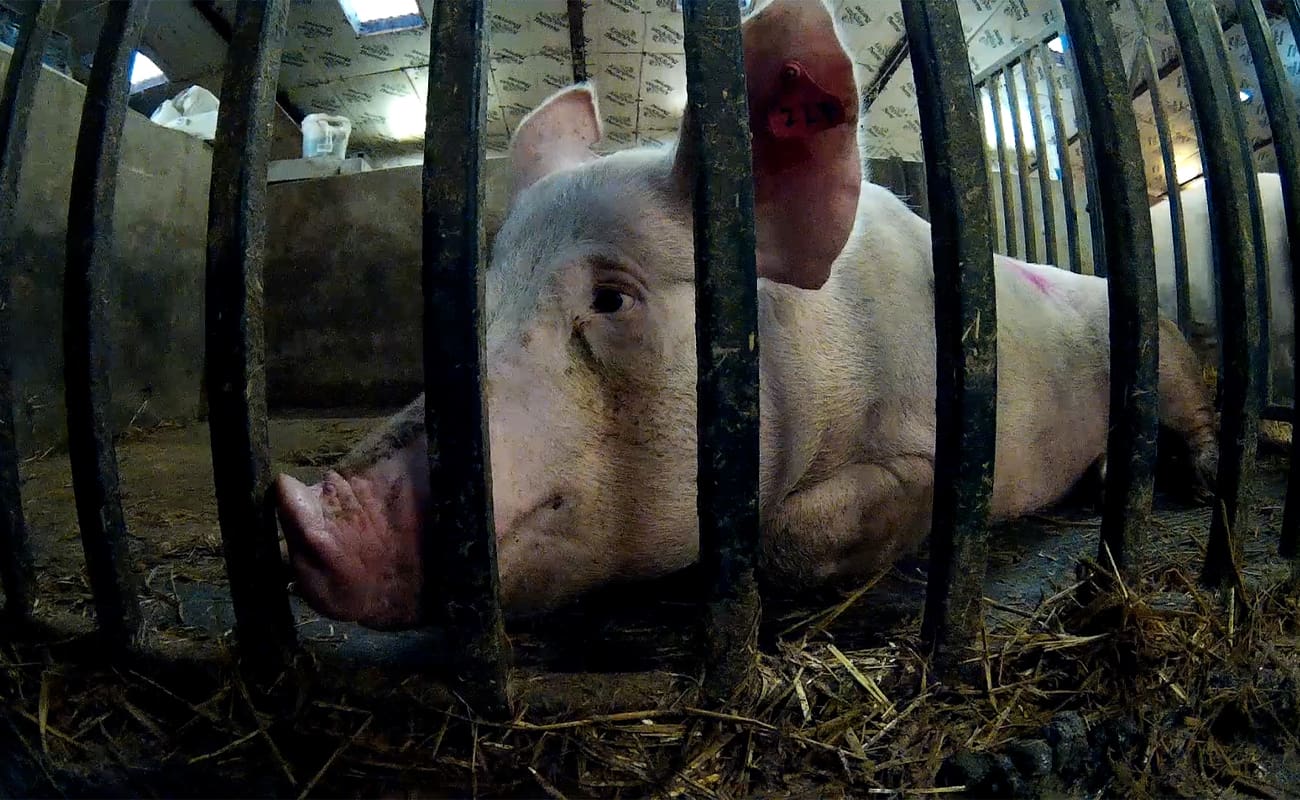Confinement in factory farms epitomizes one of the harshest realities of industrial animal agriculture. Within these facilities, billions of animals live their entire lives in spaces so restrictive that even the most basic movements are impossible. Cows may be tethered in stalls, pigs confined in gestation crates no larger than their own bodies, and chickens forced into battery cages stacked by the thousands. These forms of confinement are designed for efficiency and profit, but they strip animals of the ability to engage in natural behaviors—such as grazing, nesting, or nurturing their young—transforming living beings into mere units of production.
The effects of such confinement extend far beyond physical restriction. Animals endure chronic pain, muscle degeneration, and injury from overcrowded and unsanitary environments. The psychological toll is equally devastating: the absence of freedom and stimulation leads to severe stress, aggression, and repetitive, compulsive behaviors. This systemic denial of autonomy highlights a moral dilemma—choosing economic convenience over the well-being of sentient creatures capable of suffering.
Confronting the issue of confinement requires a multifaceted approach. Legislative reforms to ban extreme confinement systems, such as gestation crates and battery cages, have gained momentum in many regions, signaling a shift toward more humane practices. However, meaningful change also depends on consumer awareness and responsibility. By rejecting products derived from such systems, individuals can drive demand for ethical practices. By challenging the normalization of cruelty and envisioning structures that honor both animals and the planet, society can take meaningful steps toward a future where compassion and sustainability are not exceptions, but the standard.
Gestation crates for pigs are a highly controversial practice in modern animal farming. These small, confined spaces are used to house female pigs, or sows, during their pregnancy. The practice has sparked widespread ethical debates surrounding animal welfare, as it often results in significant physical and psychological distress for the animals involved. This article delves into what gestation crates are, why they are used in industrial farming, and the ethical concerns they raise. What Are Gestation Crates? Gestation crates, also referred to as sow stalls, are small, confined enclosures made of metal or wire designed to hold pregnant pigs (sows) in industrial farming settings. These crates are specifically engineered to restrict the sow’s movement during her pregnancy, providing little room for physical activity. Typically measuring no more than two feet wide and seven feet long, the design is intentionally narrow, allowing the sow only enough space to stand or lie …


























































